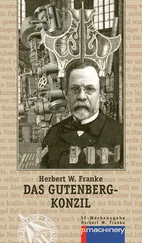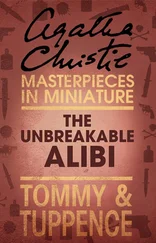“Where? Here in Mainz?” A little hardness entered Heilant’s voice. Swiftly Peter answered no. It would not do to step on Heilant’s turf.
“Away from here. That’s all I care about.” He pushed away the thought of Fust and Grede, of Jakob or the children.
“That’s good. This place is just too backward for belief.” Heilant ran a hand across his face. “I’ll see who I can show you to. Perhaps sneak you in to chapter mass.”
“Mass?” Peter said, surprised.
“You don’t imagine we would go without it, just because some peasants think that they’re in charge?” Heilant’s smile was barbed. “The ban will soon be lifted anyhow. They’ll take His Grace’s offer and say please and thank you as he rams it down their throats — and all of it in time for Advent.”
“You sound as if you know.” Peter looked at Heilant’s rosy face, the cheeks of one who in his later years would tend to floridness and fat; he scanned the room and took in all those larded monks, and saw as if in shadow all the townsfolk, saying their own prayers in their frigid houses. A feeling of revulsion rose.
“It’s just a question of the price.” Heilant gave a careless shrug. “If they can’t pay, they’ll have to take the terms their bankers — and their betters — dictate.”
Somehow Hans had talked the master into freeing them a few hours every Sabbath afternoon. They were as thick as thieves, that master and his foreman; even Konrad, the big pressman, did not have the right to talk to Gutenberg as the old smith did. Peter spent the cold gray afternoons inside his father’s house, writing out his Cicero to pass the hours.
Grede tucked her feet beneath her as they sat before the fire, and said it felt just like old times. “One of us, at least, is glad to have you home,” she said.
He made a face and kept on writing. “Come, read to me,” Grede said, patting the seat beside her. “From Proverbs, please.”
He wiped his pen, blew on his sheet. Reading was as good as anything; at least that way he didn’t have to speak. “You ought to learn to read,” he said. “You could.”
“I leave that to Tina.” Grede’s eyes were calm. They swiveled to the whirring mantel clock. “She’ll be down shortly.”
She’d roped him into teaching Tina’s chubby hands to form her letters in a tray of wax. No child of mine, Grede said, will grow in darkness as I have. How Peter had always admired her: the way she steered that older, slightly pompous husband with the gentlest of touches, her calm persistence covering the steel beneath. He felt a twinge at hiding so much from her now. Once they had been so close, conspirators in youth and their own unexpected freedom. They’d kicked their shoes off, eaten with their fingers, thrown snowballs at each other when her husband was away. Like brother and sister they had always been, determined to make life obey.
“For just a while, but then I must be off.”
“Not on the Sabbath? Shame.” Grede raised one dark, arched eyebrow.
“I only meant to take a walk.” His tone was sharper than intended. He took the small handwritten Bible from the shelf. When he sat down, he felt her eyes reproach him.
“What should I say?” His voice was querulous, but he was powerless to change it — powerless, in fact, in every way. “Everything I do here is at someone else’s pleasure.”
“I wouldn’t have asked a favor then, if I had known.”
“I should have thought that it was obvious.” He flipped the pages, lifted up the crimson band of silk.
Grede frowned and, shaking her head, restrained him with a hand. “Stop fighting everything and place your trust in God.”
“How long? Tell me. You must know — if he shares more with you than just his bed.”
He regretted it the instant it was out. She flushed and drew back.
“How you have changed,” she said.
How could he not have, once he’d tasted freedom and felt his destiny begin to beat inside? Could none of them see this? He felt it in him, greatness — he had practiced all his life, done everything they’d asked of him. In his mind’s eye the archdiocese of Mainz rolled out across the valleys either side of the great Rhine. He saw the tiny, jeweled cloisters in their swales, the columned porticoes of law courts, chancelleries, where talents such as his might finally be recognized.
“How long?” he repeated.
“He has not spoken to you?”
His head jerked up. “Of what?”
She looked into the fire. “He’d like to see you stay. And settle down.”
“Settle. You mean marry. Say it.”
“Marry, then.” Her lips compressed. “For heaven’s sake, what did you think? That you could lark about your whole life long?”
Your wander years are done.
Grede picked her needlework up again and shifted slightly, turned her body half away. “I wonder sometimes what goes on inside your mind.”
“I’d rather die.”
She rolled her eyes. “I’m sure that can be arranged.”
“Which of those horse-faced hags does Father have in mind?” He slapped the Bible shut. “Kumoff’s? With her breath like shit? Sadler’s? Kraemer’s, maybe, for her sacks of fat?” His voice was cold and low and hard. “No — Windecke’s, now there’s a match: mute, or maybe just too stupid to pronounce a word.”
Grede sat looking up at him, a glinting needle pinched between her lips. Her face was grim. “You do yourself no favors, Peter, with your pride.” Remember where we come from , said her look. “You think that you can see the path ahead, but it’s not ours to chart.”
Gutenberg kept their small crew concealed as much as he was able. By day they slaved; by night he bought their silence with his wine. That first autumn he ordained that they would spend their evenings at his fire, to keep their mouths out of the alehouse. He had Lorenz roll in a cask and left them to their own devices. Gutenberg himself went off before they’d even finished wiping down the press from printing all those cursed grammars. The master had the luck, said Keffer darkly, to drink among his peers at their own tavern. Peter wondered how he knew this, though the fact itself was not in doubt: the master drank, prodigiously — the proof was in his morning breath.
Peter set himself to writing every evening in a corner of the master’s study in hopes of penning his own transit out. He’d need some samples while he waited for a word from Heilant. He did not mind the work; it was a graceful way to keep himself from Fust’s house and Grede’s eyes. The only irritation was the way that Hans regarded him when he pulled out his quills. The old smith might have salved his damaged hand, but was no warmer in his manner. Doubtless they thought him cheeky, Peter thought as he unfolded his clean parchments and installed himself at Gutenberg’s own desk. He didn’t care.
The others huddled together, playing tablemen or carving; Keffer piped from time to time upon a flute. Peter rolled his shoulders and shook out his arms; he bent and emptied out his mind. Across the page he wrote line by line — across and back and then across again, the way a farmer plows a field. It gave him some small consolation to see that he remembered all the hands that he had learned. He pushed the thought of Fust into the furthest corner of his mind. He would not tell a soul until his bag was packed — he’d leave, and never look behind. It grieved him, but he saw no other route.
When Peter looked up once, he found the old smith watching him, a strange look in his narrowed eyes. Hans pulled a wooden pick out of his mouth and said, “So you don’t play, eh, fancy hands?”
Peter said he didn’t think he’d be much contest.
“My point exactly.” Hans put the gummy splinter back and winked at Konrad. “We got to squeeze it out whichever way we can.”
Читать дальше












